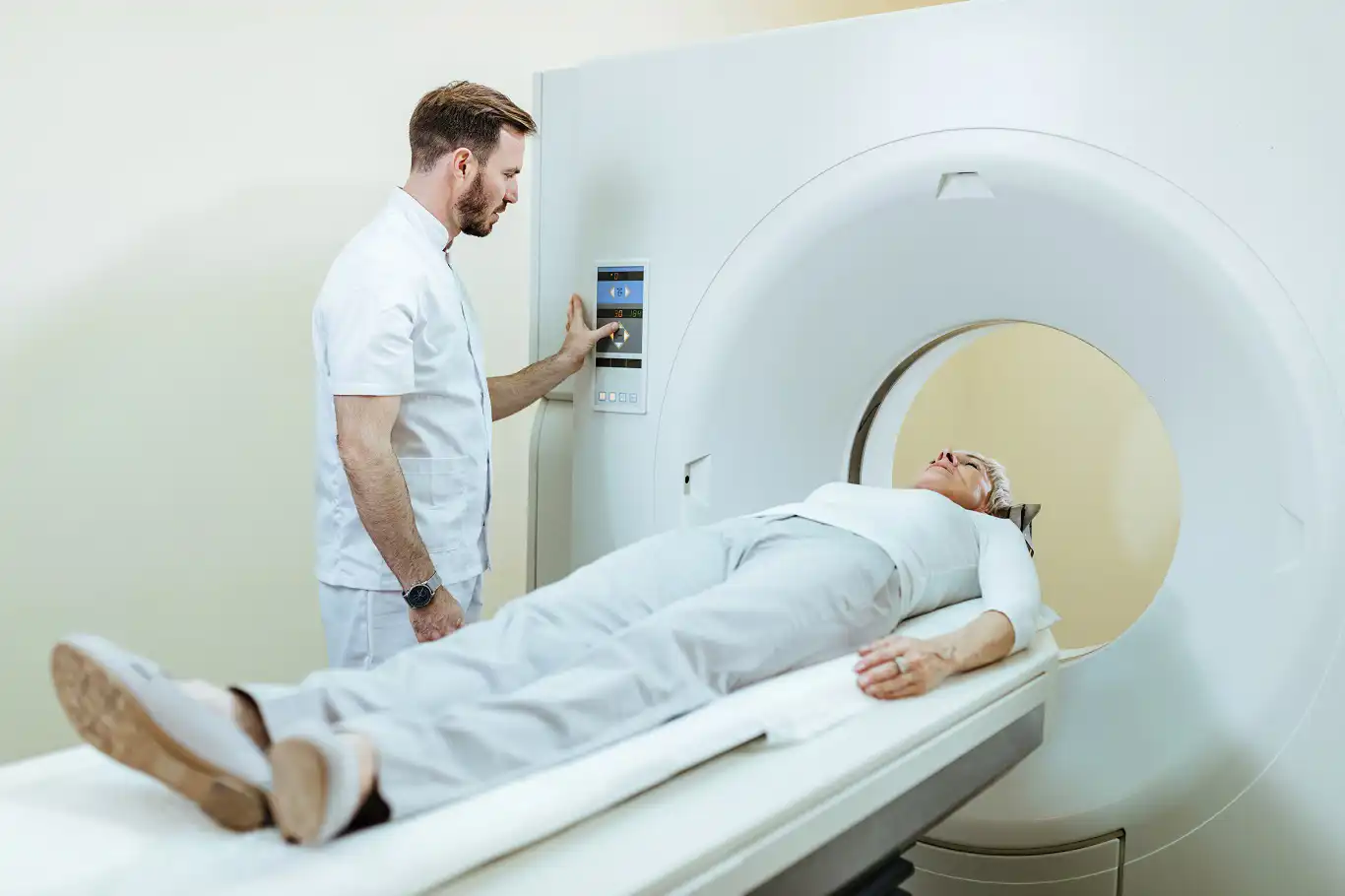NHS to trial AI-powered ‘one-day diagnostics’ to revolutionize prostate cancer detection


The UK’s National Health Service (NHS) is set to pilot an AI-driven “one-day diagnostics” service for prostate cancer that could revolutionize early detection and dramatically cut waiting times for thousands of men each year.
The new “one stop shop” initiative, funded by NHS England, will deploy artificial intelligence to interpret MRI scans within minutes, helping doctors quickly identify potential signs of cancer. The pilot will launch at Leeds Teaching Hospitals NHS Trust early next year, with up to 15 hospitals expected to join the trial. Around 100 men are set to benefit in the first phase.
The AI system—developed by British medtech firm Lucida Medical and known as Pi™—has been trained to detect up to 95% of cancers using MRI scans. If the software identifies a scan as high-risk, it will automatically alert a radiologist for review, enabling patients to undergo a biopsy the same day.
This rapid process allows doctors to either give patients an all-clear immediately or confirm a diagnosis within a few days following review, significantly reducing the anxiety and uncertainty associated with traditional waiting times.
Under current NHS guidelines, men referred urgently by their GP for suspected prostate cancer should receive an MRI and biopsy within seven days—but capacity issues, especially a shortage of radiologists, often delay this process.
Professor Peter Johnson, NHS National Clinical Director for Cancer, described the AI initiative as a potential “game changer.”
“We’re really excited by the potential of artificial intelligence to speed up cancer diagnosis,” Johnson said. “As with all cancers, speed is crucial—the quicker the diagnosis, the sooner treatment can begin and the better the chances of success.”
The project forms part of a wider £14 million NHS Cancer Programme Innovation Open Call, which supports seven cutting-edge pilots aimed at improving early cancer detection.
If successful, the AI diagnostic pathway could be rolled out nationally, helping to diagnose and treat thousands more patients earlier. It could also enable MRI scans to be performed at community diagnostic centres, making care more accessible.
Dr Oliver Hulson, Consultant Radiologist at Leeds Teaching Hospitals and lead investigator for the pilot, said the system could transform the speed of diagnosis for patients.
“This latest innovation pilot aims to take that a step further,” Hulson said. “The AI-assisted MRI screening introduces a rapid diagnostic approach, so that we can fast-track those patients that may need further investigations—all within one day at the Leeds Cancer Centre.”
The system’s impact on real patients could be profound. Alan Morton, a 66-year-old patient from Ryton, shared his story of delayed diagnosis and the toll of waiting.
“I was putting off seeing the doctor,” he said. “If this AI trial proves to be effective and gives answers sooner, perhaps even in a single day, that could save not just time but lives and relationships too.”
Health Secretary Wes Streeting said the pilot shows how technology can modernise the NHS and ease distress for cancer patients.
“By harnessing the power of technology, we are revolutionising our NHS,” he said. “AI can deliver same-day prostate diagnoses—ending needlessly long waits for test results and enabling treatment to begin as fast as possible.”
Prostate Cancer UK welcomed the initiative. Amy Rylance, Assistant Director of Health Improvement, said faster access to diagnosis is a “vital step forward.”
“Men desperately need quicker and fairer access to an accurate diagnosis and the right treatments,” she said. “The AI tool could save men prolonged anxiety while increasing capacity for our hard-working NHS workforce.”
Lucy Davies, Vice President of Clinical at Lucida Medical, said the collaboration with NHS England and Leeds Hospitals could streamline patient pathways and save lives.
“Our technology has the potential to enable a more efficient ‘one stop shop’ for diagnosis, leading to improved outcomes and cost savings,” she said.
Prostate cancer is the most common cancer in UK men, accounting for over a quarter of all male cancer diagnoses. More than 56,000 new cases are detected annually in England alone, and around 12,000 men die each year from the disease.
The AI-powered diagnostic trial represents a major step in the NHS’s long-term vision to harness emerging technologies to detect cancer earlier, treat it faster, and save more lives.
If the Leeds pilot proves successful, experts say it could pave the way for a national rollout—turning what once took weeks into a process achievable in just one day. (ILKHA)
LEGAL WARNING: All rights of the published news, photos and videos are reserved by İlke Haber Ajansı Basın Yayın San. Trade A.Ş. Under no circumstances can all or part of the news, photos and videos be used without a written contract or subscription.
The health situation in the Gaza Strip has reached a catastrophic level, with more than 70,000 hepatitis cases reported across the besieged enclave, according to health authorities.
The Polio Free Afghanistan Foundation announced that a polio vaccination drive will begin tomorrow in the eastern provinces of Kunar, Nuristan, and Laghman.
Prof. Dr. Engin Yıldırım, an Obstetrics and Gynecology specialist at Malatya Training and Research Hospital and faculty member at Malatya Turgut Özal University, has called for greater public awareness about the benefits of natural childbirth.